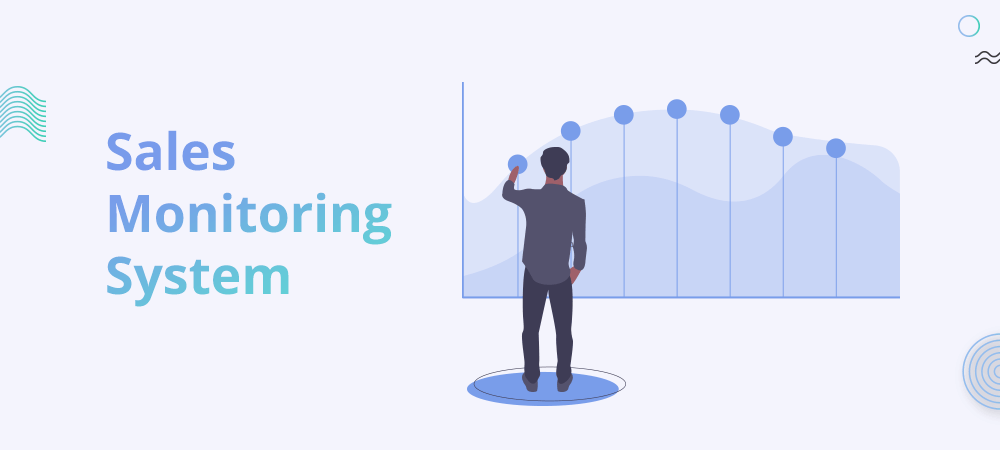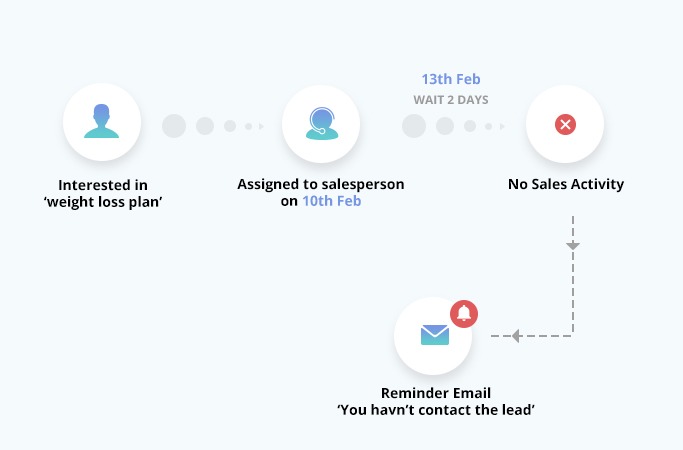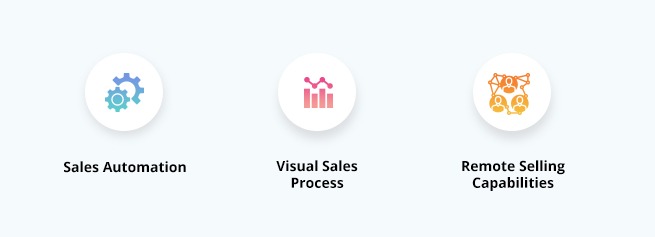Every company is looking for a way to improve their sales performance, whether you’re brand new in the market or you have a healthy clientele to depend on. There’s no question that there’s always room for improvement. The problem comes with knowing where to allocate your efforts to make the right changes in your sales performance.
Do you know where your best opportunities lie at all times?

Do you know when people are most likely to drop out of your sales funnel and how to plug those holes so fewer leads leak out?
Do you send out the right content at the right buying stage and know the best time to follow up with your leads?
Answering yes to these questions can contribute to improving your sales performance, but the only way to answer yes with certainty is by having cold, hard data that reveals what you want to know about your sales process.
This data isn’t an elusive unicorn. If you’re using a sales monitoring system, you have countless valuable gems at your disposable to help you hone your sales process and revitalize your performance with little to no guesswork on your end.
What Is a Sales Monitoring System?
Every process is comprised of myriad moving parts: lead generation, qualification, and scoring, sales predictions, the various stages of the sales funnel, countless follow-up, and tons of nurturing at every step.

A sales monitoring system provides an easy way to manage all of the above.
Think of it as a bird’s eye view to help you monitor and facilitate the activities within your sales organization. The sales monitoring system tracks leads as they move through the sales funnel, reminds sales rep to follow up or send specific pieces of content based on the prospect’s buying stage, and collects data on engagement.
This helps sales teams focus less on manual tasks so they can do what they do best—sell.
Advantages of a Sales Monitoring System in Your Business
The main advantage of using a sales monitoring system is to gain visibility into your sales process. Because sales are the lifeblood of any company, it’s critical to know what’s in your sales funnel at all times and how much revenue to expect from your current opportunities.
But it doesn’t end there. The following advantages can also help you improve your sales performance:
Repeatable Processes
Any time you implement a process, you’re setting yourself up for repeatable success. Processes ensure consistency for specific tasks, which helps to prevent critical details from falling through the cracks. This ensures that every client receives the attention they deserve so you never miss an opportunity.
Streamlined Operation
Taking a systematized approach to sales makes your entire operation more efficient. Sales reps can spend less time thinking about their next time and more time on revenue-generating activities to create a seamless experience for every prospect.
Data Collection for Better Decisions
When sales monitoring systems are implemented correctly, they collect all the data you need to make informed decisions for your organization. Data gives greater insight into what’s working and what’s not in your sales process so you can tweak and refine as you go.
Must-Have Features of a Sales Monitoring System
It’s easy to see why sales monitoring systems are so valuable to the companies who use them: the average return on investment for CRM and sales monitoring is about $8.71 for every dollar spent!
So what should you look for in a sales monitoring system to make that kind of an ROI?
Let’s look at some of the key features of successful sales monitoring systems:

Sales Automation
Sales monitoring systems start before sales teams should ever be involved in the process. By automating certain tasks like lead qualification and task assignment, sales reps are better able to spend less of their time on consuming tasks and more time guiding prospects to desirable decisions.
Visual Sales Process
Sales monitoring isn’t just about making easier work for the sales rep. It’s also about giving companies better insight into the real-time sales process. Sales monitoring systems should provide visuals into every aspect of your sales funnel, from lead generation and qualification to follow-ups and revenue predictions.
Remote Selling Capabilities
A strong sales monitoring system should also include visibility into remote field teams. Companies should always be able to see what’s happening in the field and stay connected with reps.
What’s in Your Sales Monitoring System?
Building a sales monitoring system can be one of the best decisions you’ll make for your sales organization. Like sales itself, sales monitoring is made of several moving parts that must work together to achieve your specific goals.
Reach out today to schedule a consultation on how to create a powerful, sustainable sales monitoring system in your organization, and start building better sales from the inside out.








